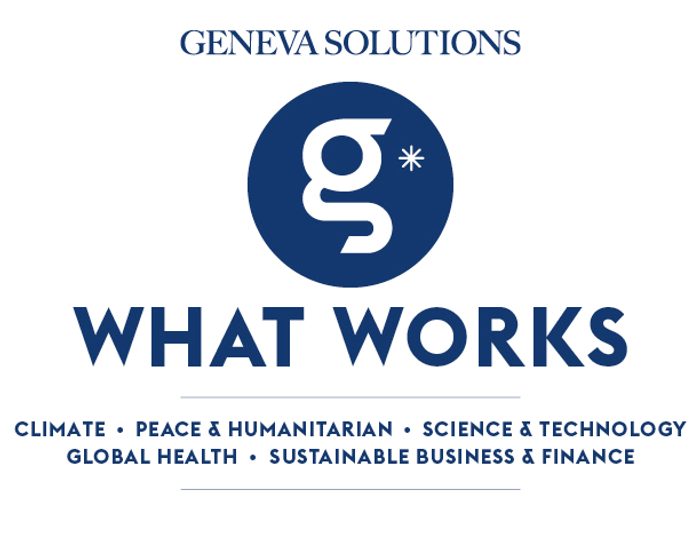Good morning, this is Paula. In a year that has seen deaths from violent extremism surge by 22 per cent, one organisation in Geneva is working on preventing the violence before it happens.
Khalid Koser from the Global Community Engagement and Resilience Fund tells us that their strategy – supporting communities where distrust, social exclusion and poverty prevail – is difficult to appraise, and therefore hard to fund. |

|

Residents assess the damage at the site of an attack at the Pearl Beach Hotel in Mogadishu after the Islamist Al-Shabaab group claimed responsibility for the attack on 10 June 2023. (Keystone/AFP/Hassan Ali ElmiI)
|
|
Since the 11 September 2001 attacks by Al-Qaeda, not only has geopolitics shifted in regions where western alliances were present, but security issues have soared to unforeseen levels. Climate change, the economic repercussions of Covid-19, conflict and transnational crime have set the path for sustainable development into reverse while triggering grievances within communities.
Add new technologies, fake news and eager recruiters from terrorist groups to the equation, and the risk of violent extremism rises. According to the 2024 Global Terrorism Index, countries in the Sahel region were among the worst affected globally, with Burkina Faso in the top position. Deaths from terrorism were up globally by 22 per cent in 2023, to their highest rates since 2017.
As the Gaza war raises fear over the risk of increased radicalisation, GCERF, a Geneva-based organisation working with vulnerable communities to prevent violent extremism, says tackling the roots of the trend involves ‘surgical’ interventions and a ‘leap of faith’.
Read the full story on Geneva Solutions
|
|
|
💉DENGUE JAB GREENLIGHTED.
The World Health Organization has approved the Japanese-made vaccine Qdenga, the second immunisation against dengue to get global approval.
|
|
Why it’s positive.
Dengue kills 30,000 to 70,000 every year, and warmer temperatures and hectic rain patterns offer the perfect opportunity for mosquitoes carrying the disease to thrive. A record six million infections have been reported this year in the Americas. The two-dose vaccine is said to be 84 per cent effective in preventing hospitalisation and 62 per cent in preventing symptoms.
📖 Read our previous reporting: Mosquito-to-toe: the race to contain climate-sensitive diseases
|
|
Here's what else is happening
-
⛓️Red Cross and foreign office to discuss plan to visit Palestinians in Israeli detention.
The ICRC is in talks with the UK, which has negotiated access for two British legal experts and an Israeli judge to visit the detainees.
The Guardian (EN)
-
👁️🗨️‘We are neither the CIA nor the Mossad,’ says head of Swiss-Israeli Association.
The group urged in a leaked email its members to “systematically” monitor those who express solidarity with Palestine in social media, including from the WHO, Unicef, Unrwa, ICRC and the Swiss foreign affairs ministry.
Le Temps (paywall) (FR)
-
🧂WHO urges countries to ban high-salt foods.
Heart attacks and other cardiovascular diseases, which can be linked to excessive salt intake, kill nearly 10,000 people per day in the European region, according to the UN health agency.
Politico (EN)
-
🤝In first AI dialogue, US cites ‘misuse’ of AI by China, Beijing protests Washington’s restrictions.
Separate declarations following the meeting in Geneva between the two rivals were telling of the frictions that prevail in the bilateral relation.
The Guardian (EN)
-
🖋️'To prevent a language from being taught is to wipe out a people'.
Uyghur poet and linguist Abduweli Ayup opened the Geneva Summit on Human Rights and Democracy at the Palais des Nations on Wednesday.
Tribune de Genève (paywall) (FR)
|
|
GS news is a new media project covering the world of international cooperation and development. Don’t hesitate to forward our newsletter!
Have a good day!
|

|
|
Avenue du Bouchet 2
1209 Genève
Suisse
|
|
|
|








